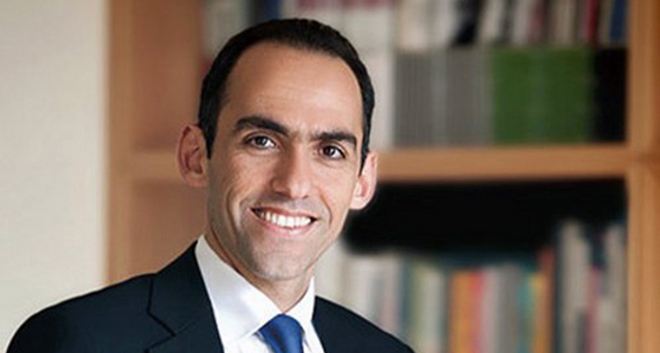Georgiades: We Do Not Believe In Deficit Policies
17:30 - 02 Νοεμβρίου 2016

Cyprus will not relax its budgetary targets, stressed Finance Minister Harris Georgiades in his speech at the 12th Economist Summit in Nicosia, Cyprus News Agency reports. He further noted that "unlike others in Europe, we do not believe in deficits policies, nor we believe that growth comes through deficits and debt".
He noted that this is the reason why Cyprus ensured exceptionally good financial performance, because the country wanted to create trust, reliability and predictability in relation to its economic policy.
"Since 2014 we operate with a primary surplus of around 2.5% of GDP, while for 2017 we have tabled a budget that provides a primary surplus of 2.1%. Only one or two other member-states pursue and plan to achieve similar performance, "he said.
He added that these are facts which are not disputed by either the European Commission or by anyone, as no parameters of the budget are challenged, for example the projected growth between 2.5% -3 % of GDP in 2016.
"It is therefore unfortunate to arise an issue from a not so transparent, technical process that calculates potential production, which substantially takes parameters suggesting that the economy of Cyprus goes through an overheating phase, which is, of course irrational," he said.
At the same time, the Minister sent the message that additional measures are out of the question, because this would lead to a primary surplus in excess of 3% of GDP, something completely unnecessary and counterproductive, which would undermine the growth prospects.
"I reject any increase in taxes with the same intensity that I reject any irresponsible rise in public spending," he said.
He also said that if “we have chosen to move towards further reducing of public spending we should -in contrast to what the Commission seems to imply- to accompany these reduction of costs with a corresponding reduction in taxation".
This, as he said, would be necessary to ensure fiscal neutrality and stability and to maintain the right balance between sustainability of public finances and economic recovery, something that Cyprus, as he said sought and achieved, responding in this way to the false dilemma facing Europe on austerity or growth.
On his part Klaus Regling Managing Director of the European Stability Mechanism highlighted the need for a continued reform effort following Cyprus` exit from the adjustment programme.
Recalling that Cyprus managed to cover it refinancing needs from the international capital markets, Regling pointed out that this “is one of the positive results of going through the adjustment programme.”
“Cyprus has overcome many of its problems which made it much easier to establish financing,” he said and expressed hope that structural reforms will continue which in turn could help attract international investments to the economy.
Furthermore, Regling noted that Europe has come a long way since the 2008 financial crisis.
“It is the mistaken view that Europe is stumbling from crisis to crisis, without learning. It is the mistaken view that Europe is an unfinished project, and that it malfunctions,” he said.
“The prevailing pessimist view on Europe is certainly exaggerated. The truth is, on the whole, Europe is doing reasonably well. It has made tremendous progress since the crisis,” he added.
Noting that challenges remain, as always, Regling stressed “but we can tackle them with relatively small steps, in comparison to the huge leaps Europe has taken in the last 6 years.”






